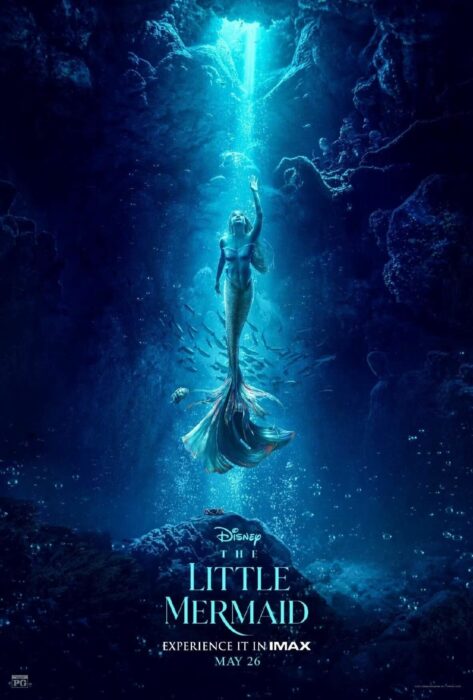The Little Mermaid’s Live-Action Remake Fares Better Than Critics Forecast
As moviegoers tire of remakes, it was unclear how Disney’s new live-action version of The Little Mermaid would fare over the holiday weekend. But it seems our love for Ariel (Halle Bailey in this version) and her friends overcame all obstacles by earning “the fifth-best Memorial Day opening ever with a 4-day haul of $121 million.”
But was this reception deserved or merely the result of hitting theaters right before a major holiday? No doubt Memorial Day helped a bit, but the hype surrounding this film is also real. For myself, I still personally favor Disney’s live-action Cinderella (2015) and Aladdin (2019). Yet this film ranks a close third amongst two excellent live-action remakes.
The Little Mermaid goes deeper than the animated film
The film mostly follows the original version’s main plotline. Any divergence only deepens our knowledge and understanding of the world overall and each character—something many older Disney movies desperately need with such two-dimensional love interests like Eric (played by Jonah Hauer-King in this film) or Prince Charming (from the original Cinderella, 1950).
The film also received criticism for being too agenda-driven and casting Halle—a black singer. But once you hear her sing and encounter the sweetness she brings to this role, it’s clear she deserved it. Director Rob Marshall recounts the moment he was captivated by Halle’s voice in an interview with IMDB:
John Deluca and myself were watching the Grammys, and Chloe and Halle start to sing “Where is the Love?” A beautiful song. And I turned to John, I said, “Wait—is that Ariel?” She’s so ethereal, so otherworldly with that angelic voice. She had a presence.
While all the cast members filled the shoes of their predecessors well, Lin Manuel Miranda’s three additional songs didn’t add quite as much gravity as I’d hoped. I enjoyed hearing Eric (Hauer-King) sing, but compared to the groundbreaking songs “Speechless” from Aladdin (2019) and “Evermore” from The Beauty and the Beast (2017), his song was a bit underwhelming and didn’t live up to Miranda’s usual grandeur. The other two additional songs were even less noteworthy.
So does Ariel set an example of teenage rebellion?
Note: This section contains spoilers only for the original 1989 film.
With the reappearance of this story into our lives, Christians are asking the same questions we’ve always asked: Does The Little Mermaid promote teenage rebellion and villainize parental figures? To answer this question, we need both a biblical worldview and a knowledge of proper story/character structure. Otherwise even thoughtful, culture-engaging Christians frequently come to the wrong conclusions.
It’s true that Ariel rebels against her overly-harsh father, King Triton (Javier Bardem). She makes horrific decisions that put her and her entire family in mortal danger. Then her father responds in anger to what little he knows of her actions—making it momentarily appear that he is the villain of the story and she the poor, misunderstood teenager. In the end, Ariel gets what she wants and lives happily ever after. So we can conclude that she’s rewarded for her bad behavior, right?
Absolutely not. There are certainly a lot of misunderstandings between Ariel and the king in the beginning of the movie that make the situation messy. But let’s focus on the fact that Ariel’s rebellion isn’t rewarded. In fact, she fails miserably when she isn’t able to kiss Eric at the end of the three days. When Ursula captures and drags her back to the ocean, Ariel loses her chances of being with the man she loves, and she’s forced to watch her father give up his crown and his life to save her.
In the end, the only reason she’s able to be with Eric is because King Triton—who is softened by nearly losing her—forgives her and gifts her with legs. The film’s happily-ever-after is not the result of her foolishness, but instead from the grace and growth of an imperfect yet loving father. Here in Triton’s parental moments of self-sacrifice and forgiveness, we see the gospel shine brightest.






































